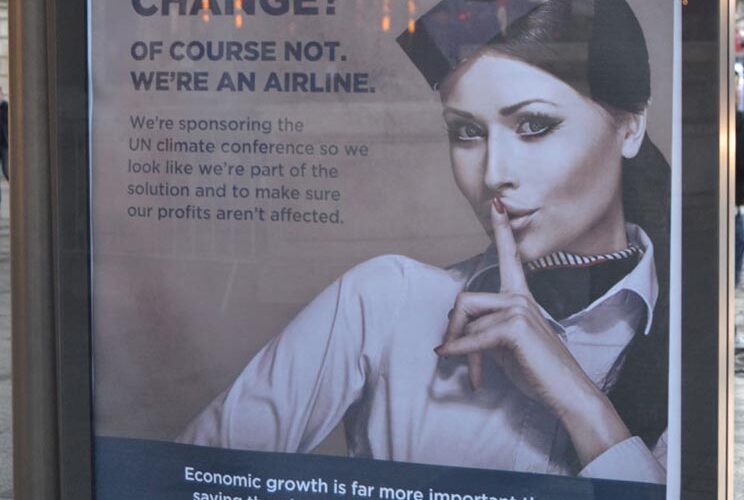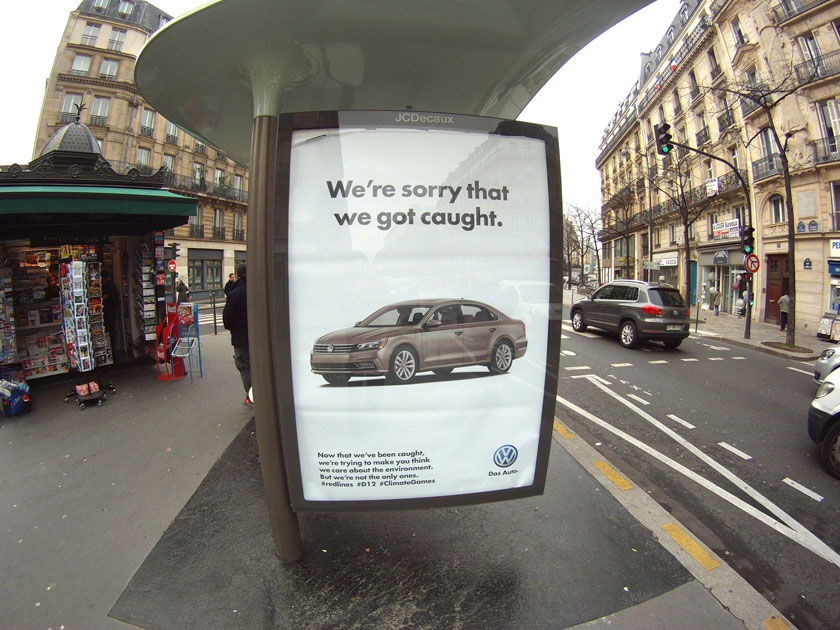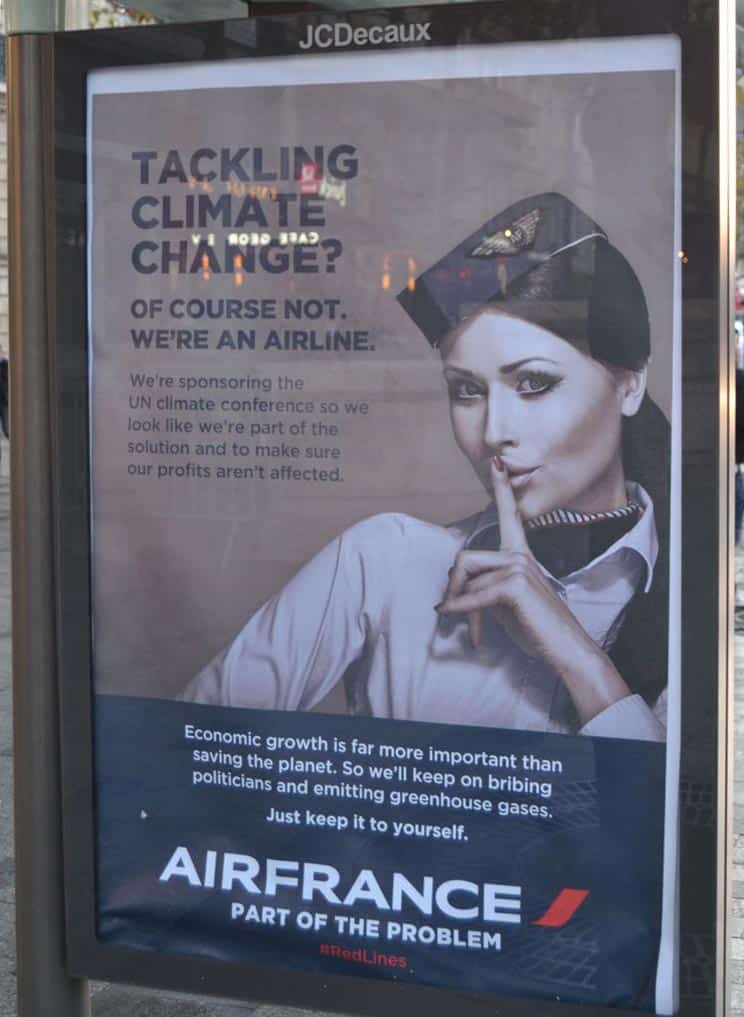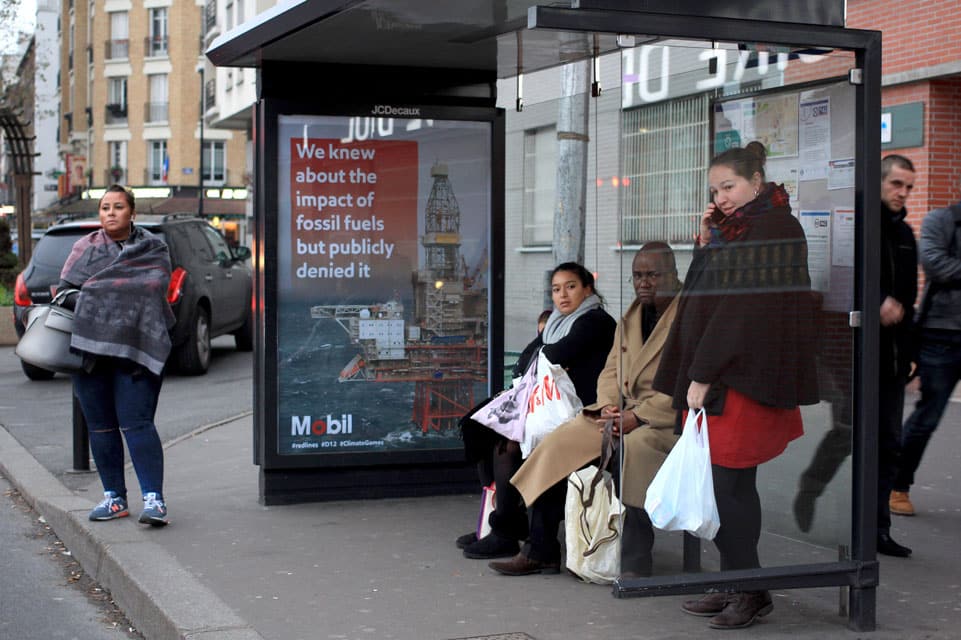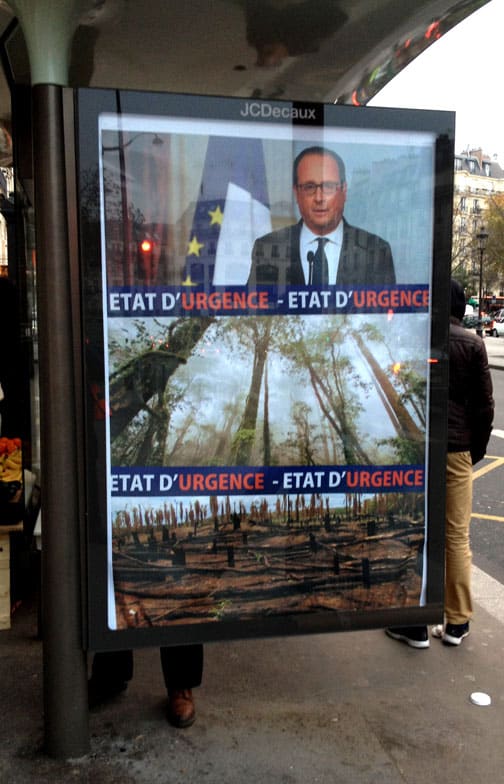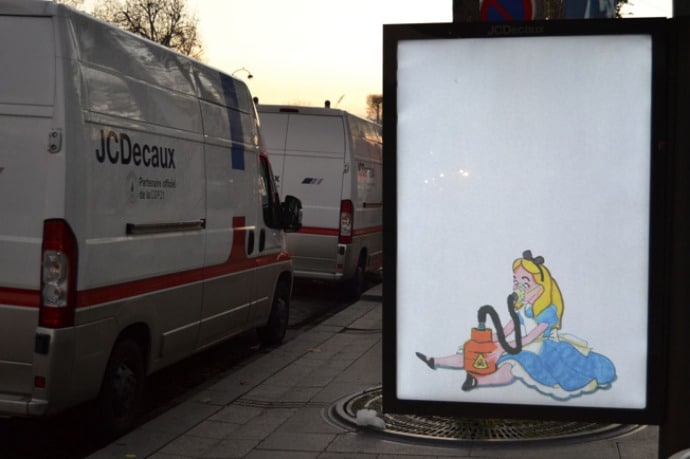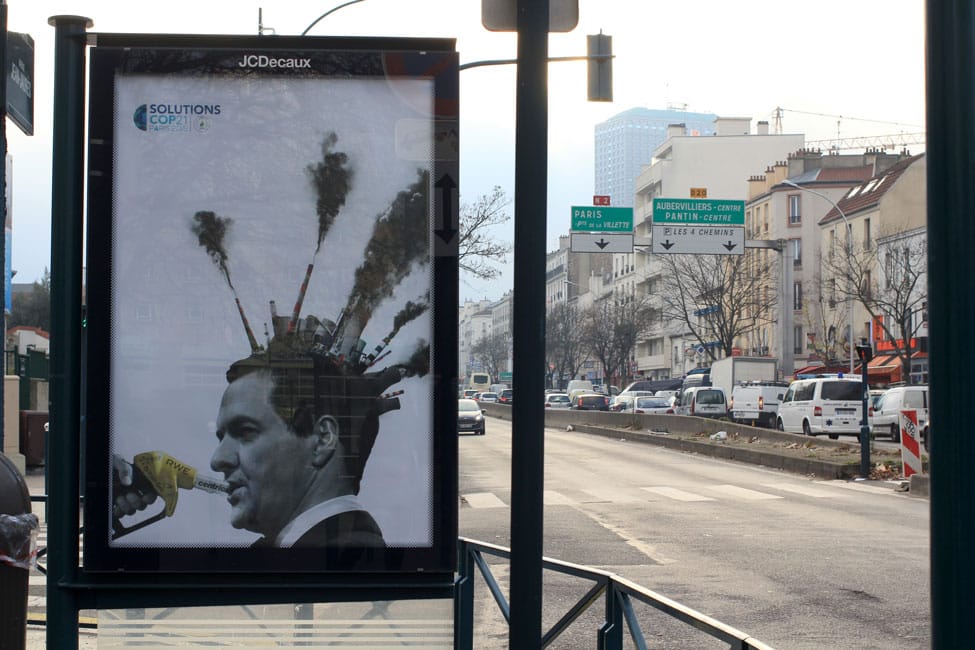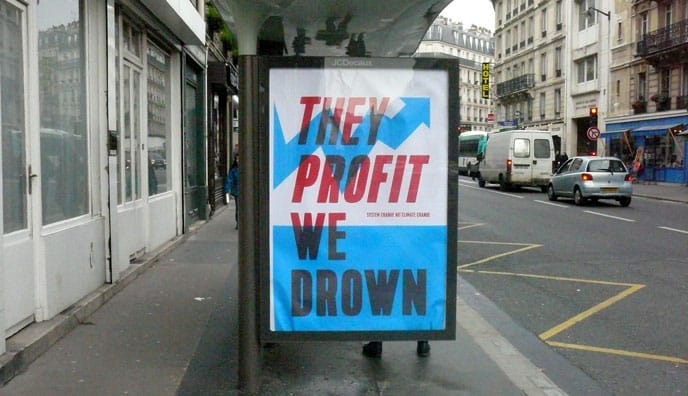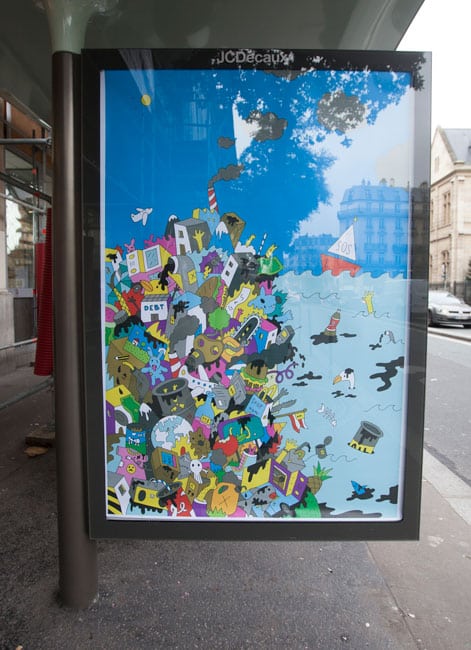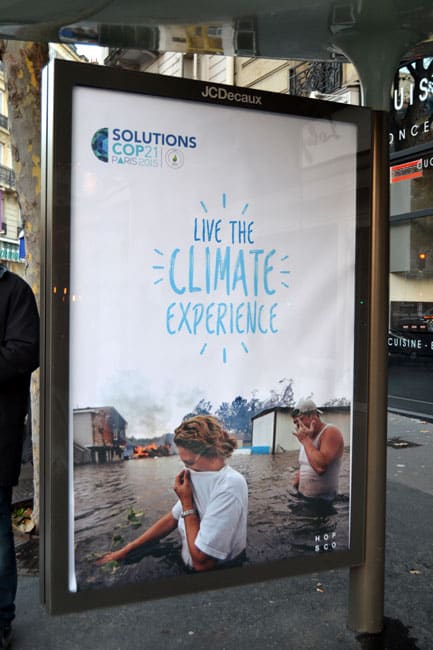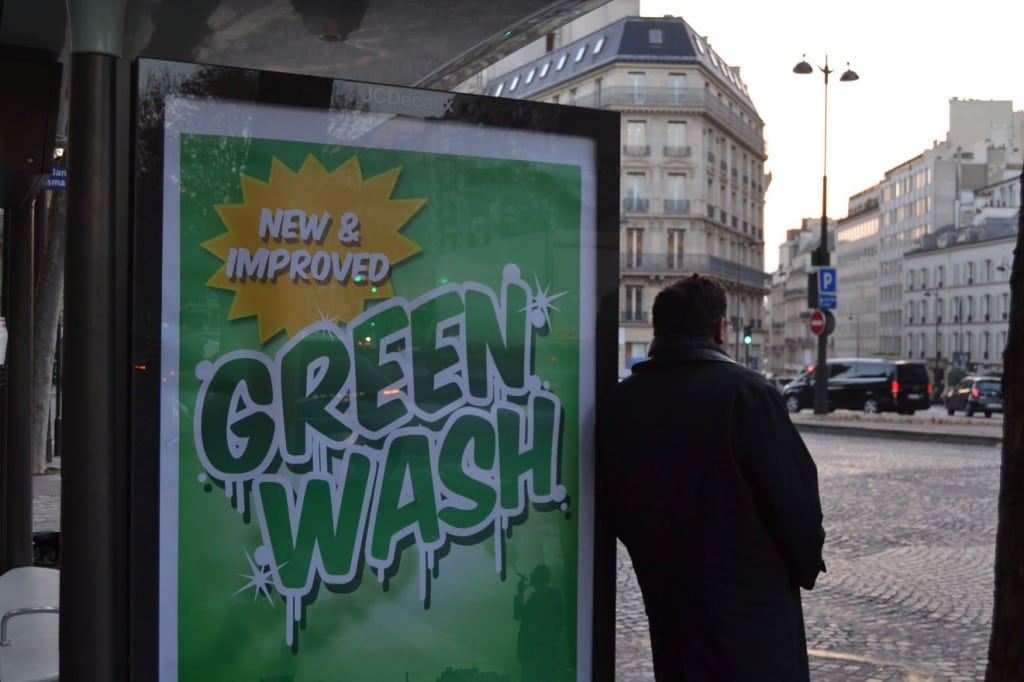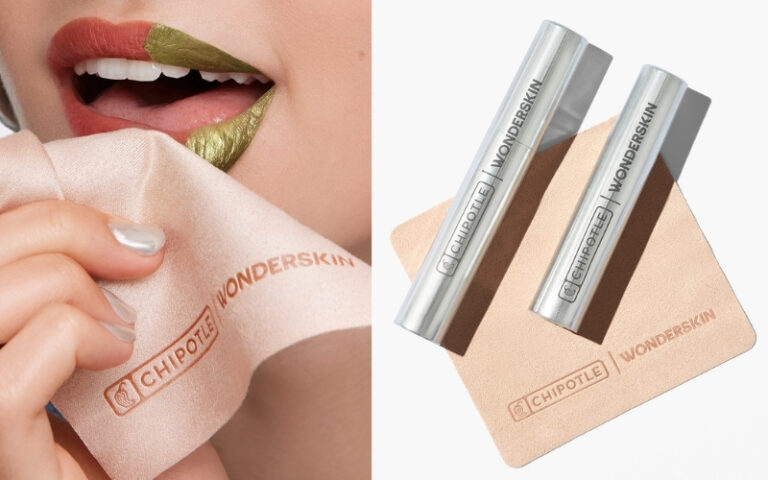On the eve of the 2015 United Nations Climate Change Conference (COP 21) in Paris,more than 600 artworks criticizing the corporate sponsors and political leaders of the event were installed in advertising spaces across the city.
Who was targeted?
All the targeted brands are corporate sponsors of COP21, including Volkswagen, Air France and GDF-Suez. The artworks were installed in advertising spaces owned by JCDecaux, another sponsor of the event. Political leaders, such as Francois Hollande, David Cameron, Barack Obama, Angela Merkel and Shinzo Abi also feature on some of the posters.

Why it happened?
The objective is to highlight the hypocrisy of the companies who associate themselves with an ecological event while their actions suggest they don’t really care about it. Here are some arguments provided by Brandalism in their Press Release:
- Major polluters such as Air France and GDF-Suez-Engie promote themselves as part of the solution to climate change by sponsoring the event, when they are actually a big part of the problem
- These brands promote unsustainable consumerism through advertising. Their ads feed our desire for products created from fossil fuels and make the problem worse.
- After the tragic events on 13th November in Paris, the government decided to ban the big civil society mobilizations for security reasons, and yet still allowed this conference to go ahead. The problem is that these multinationals were able to greenwash themselves by sponsoring the event while the population was silenced.
“It’s now more important than ever to call out their lies and speak truth to power. We call on people to take to the streets during the COP21 to confront the fossil fuel industry. We cannot leave the climate talks in the hands of politicians and corporate lobbyists who created this mess in the first place.” explained Bill Posters from Brandalism on their press release.
How it affects brands – some examples:
Volkswagen:
Volkswagen was predictably targeted in the campaign following the emissions scandal in which the car brand was caught using software that cheated emissions tests of their cars, making their products appear greener than they are.
Air France:
In June this year Air France stated its commitment to reduce its environmental footprint by 20% in 2020. Brandalism however accused the airline of corrupting politicians to ensure its profits aren’t affected by any emission agreements.
Mobil:
Oil Company Exxon-Mobil, was also denounced after it was caught giving $2.3m to members of Congress and a corporate lobbying group that block climate change fighting efforts. The fake Exxon-Mobil poster said, “We knew about the impact of fossil fuels but publicly denied it.”
Conclusion
To conclude, even though some of the brands targeted by Brandalism aren’t really official sponsors of the COP21 (Volkswagen isn’t, but Renault-Nissan is), the impact of the fake campaign was huge, especially because the timing was perfect. The idea was brilliant and we really hope this will help people understand the urgent need for everyone to reduce the ecological footprint.
One of the main take away points for brand managers could be that it is essential to use branding tools such as advertising in an ethical, clear, and honest way.
A good marketing strategy means aligning every action with an ethical and honest brand promise. When companies fail to consistently deliver on their promise, expectations are then ruined and the brand erodes over time, as customers get irritated and consider choosing the competition instead.
References: Brandalism, The Drum, Air France, The Guardian
Pictures from: Brandalism




